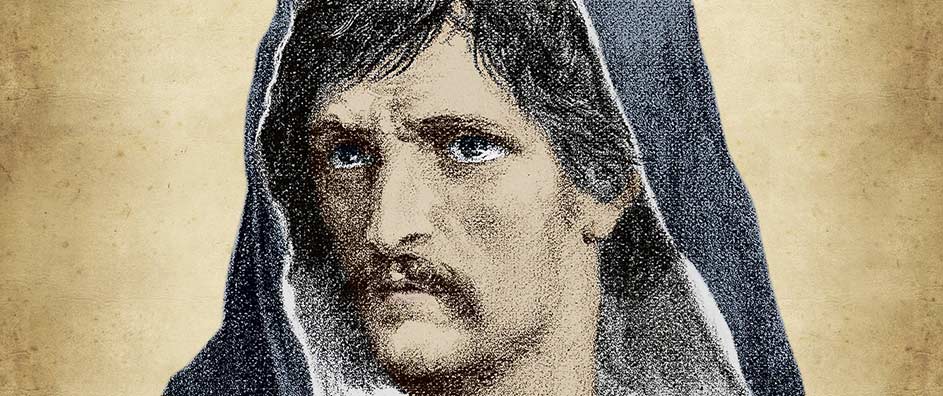As we delve into the intricate fabric of history, we confront intriguing figures whose lives illuminate the perennial tensions between knowledge, belief, and societal norms. Giordano Bruno stands out as a figure emblematic of this struggle, prompting us to ponder: Can the pursuit of truth, in its most radical form, lead to martyrdom? In examining Bruno’s contributions to science and philosophy through the lens of Bahá’í teachings, we uncover a rich narrative of intellectual bravery and spiritual enlightenment.
Bruno, a 16th-century Italian philosopher, was nothing short of revolutionary, pushing the boundaries of contemporary thought far beyond the geocentric paradigm. He proposed that the universe was vast and filled with innumerable worlds—an audacious assertion that not only contradicted the prevailing cosmological views but also challenged the dogmas of his time. His radical ideas insinuated a cosmos replete with infinite possibilities, urging societies to reconsider humanity’s place within this expansive reality. If the Bahá’í teachings emphasize the unity of science and religion, one might question—how does Bruno’s martyrdom reflect this integral relationship?
In the context of Bahá’í philosophy, the pursuit of truth is not merely an intellectual endeavor; it is a divine obligation. Bahá’u’lláh, the Founder of the Bahá’í Faith, emphasizes that “the earth is but one country, and mankind its citizens.” This principle extends to the realm of science, where the quest for knowledge must transcend religious and cultural barriers. Bruno’s thirst for knowledge and his willingness to confront the established order resonates with the Bahá’í ideal of encouraging inquiry and skepticism. His fate, however—execution for his beliefs—raises profound questions about the cost of such intellectual freedom.
In exploring the tension between science and faith, we acknowledge that Bruno’s commitment to his principles ultimately led him to a painful demise. His trial before the Roman Inquisition becomes a cautionary tale about the repercussions of challenging societal norms. Still, it raises another inquiry: Is it possible that martyrdom, while tragic, can serve as a catalyst for subsequent enlightenment? The Bahá’í perspective posits that such sacrifices are not in vain; rather, they often herald transformative shifts in collective understanding.
Moreover, the historical ramifications of Bruno’s life and death resonate widely. His radical vision foreshadowed the eventual acceptance of heliocentrism and the principle of plurality in the cosmos. The Bahá’í teachings advocate for scientific advancement as a means to foster unity and understanding among humanity. This perspective encourages individuals to confront and dismantle esoteric barriers that hinder intellectual progress. By situating Bruno’s contributions within this framework, we acknowledge him not only as a martyr but also as a harbinger of a new era of reason.
Equally pertinent are the philosophical implications of Bruno’s understanding of the divine. He espoused an immanent view of God, suggesting that the divine essence permeated all existence. This perspective aligns harmoniously with Bahá’í teachings, which assert the interconnectedness of all creation and the divinity inherent within humanity. The implications of such a view prompt us to consider how spirituality and scientific inquiry can coalesce, fostering a holistic understanding of truth. Is it not conceivable that embracing an expansive, inclusive worldview can lead to profound insights that elevate human consciousness?
As we navigate this complex terrain, it’s essential to explore the potential challenges inherent in the intersection of faith and reason. How can societies ensure that the pursuit of truth remains unencumbered by the shackles of dogma? The Bahá’í principle of independent investigation of truth serves as a guiding beacon. By encouraging individuals to seek knowledge autonomously, communities may cultivate environments where innovation can flourish without fear of retribution.
Bruno’s legacy thus serves as an imperative reminder of the need for vigilance in safeguarding intellectual freedoms. In recognizing that the pursuit of knowledge can incite discomfort among the powerful, the Bahá’í teachings advocate for a balanced approach to truth-seeking—one that honors the diversity of thought while fostering communal harmony. This balance becomes vital as we reflect on contemporary challenges to scientific inquiry, where dogmatic ideologies continue to clash with empirical evidence.
Ultimately, Giordano Bruno emerges not merely as a martyr of science but as a testament to the power of ideas in transcending temporal boundaries. His life and death beckon us to consider the complexities of the human condition, urging us to navigate the delicate interplay of belief and knowledge. As we engage with his narrative through the lens of Bahá’í teachings, we are compelled to ask: How might the legacy of such individuals inspire future generations to uphold truth in the face of adversity?
In conclusion, the pursuit of truth, as illustrated by Giordano Bruno’s journey, is fraught with challenges yet imbued with the potential for profound enlightenment. Through the lens of Bahá’í teachings, we find a call to harmonize science and spirituality, underscoring the necessity for intellectual exploration in the quest for understanding. Thus, each inquiry we embark upon carries the weight of history, reminding us that the search for truth is not only a personal endeavor but a collective responsibility—one that binds us in our shared humanity.
